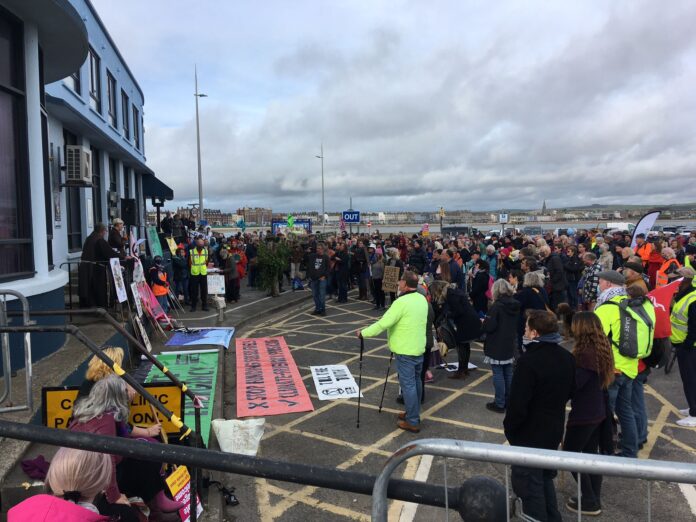Weymouth was alive today with the sound of samba as approximately 400 climate protesters took to the streets. With climate justice at its core, over 20 organisations and groups came together under the COP26 Dorset Coalition umbrella to highlight climate inaction and how it disproportionately affects those who are least responsible for it.
Today’s event in Weymouth is part of wider protests happening all over the world as part of the COP26 Coalition Global Day of Action for Climate Justice.
The rally gathered at Weymouth Pavilion where local coalition members included environment NGOs, trade unions, grassroots community campaigns, faith groups, youth groups and racial justice networks. Amongst the speakers was Lynne Hubbard, an NHS worker for 30 years who spoke about the links between climate and health.
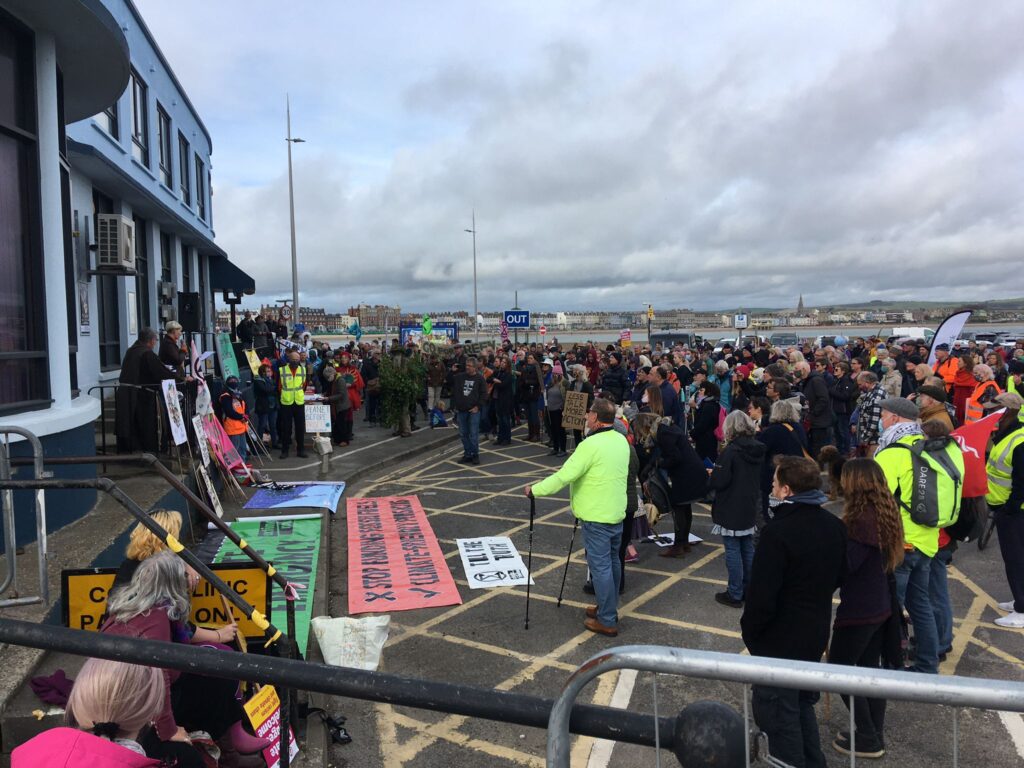
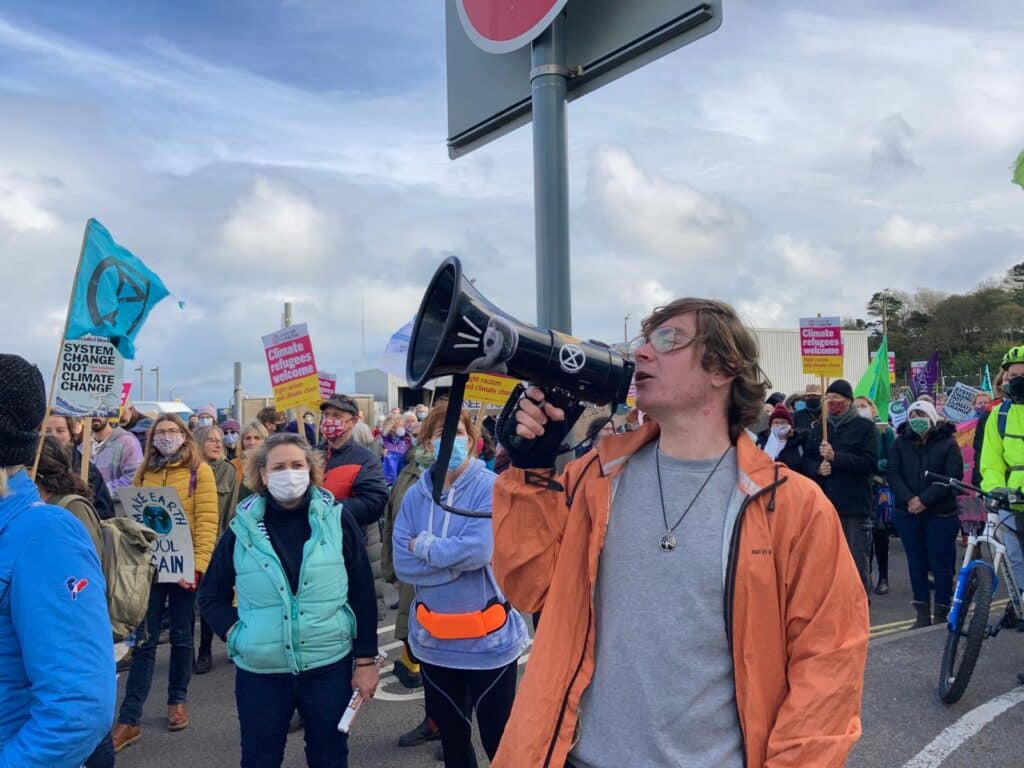
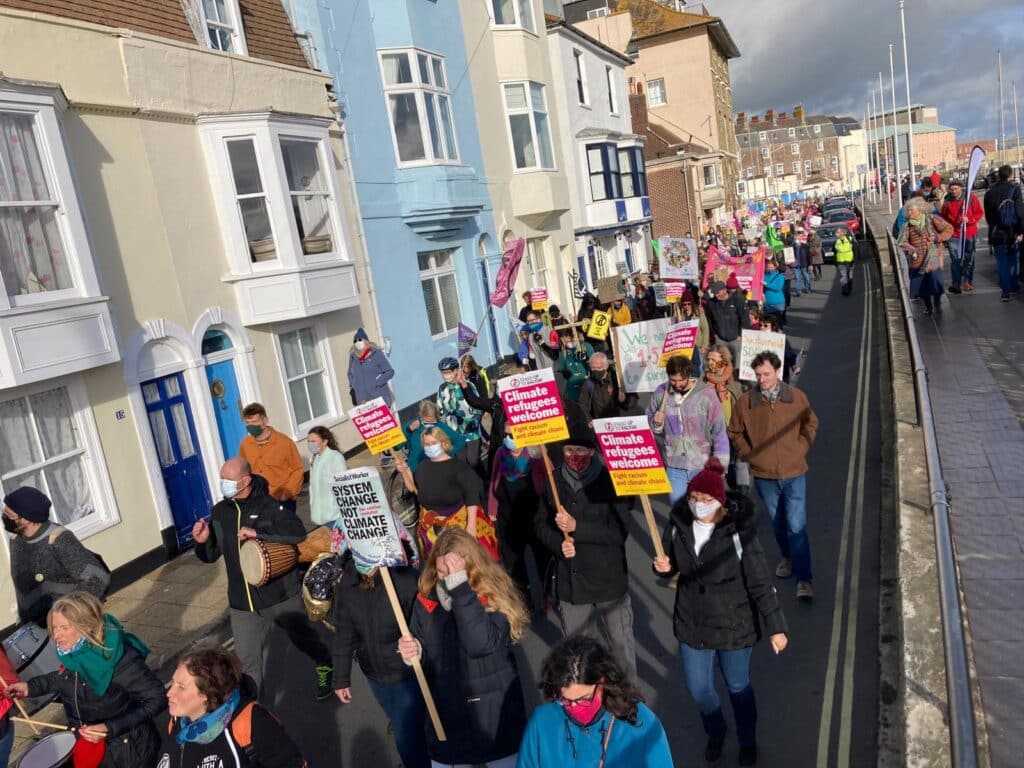
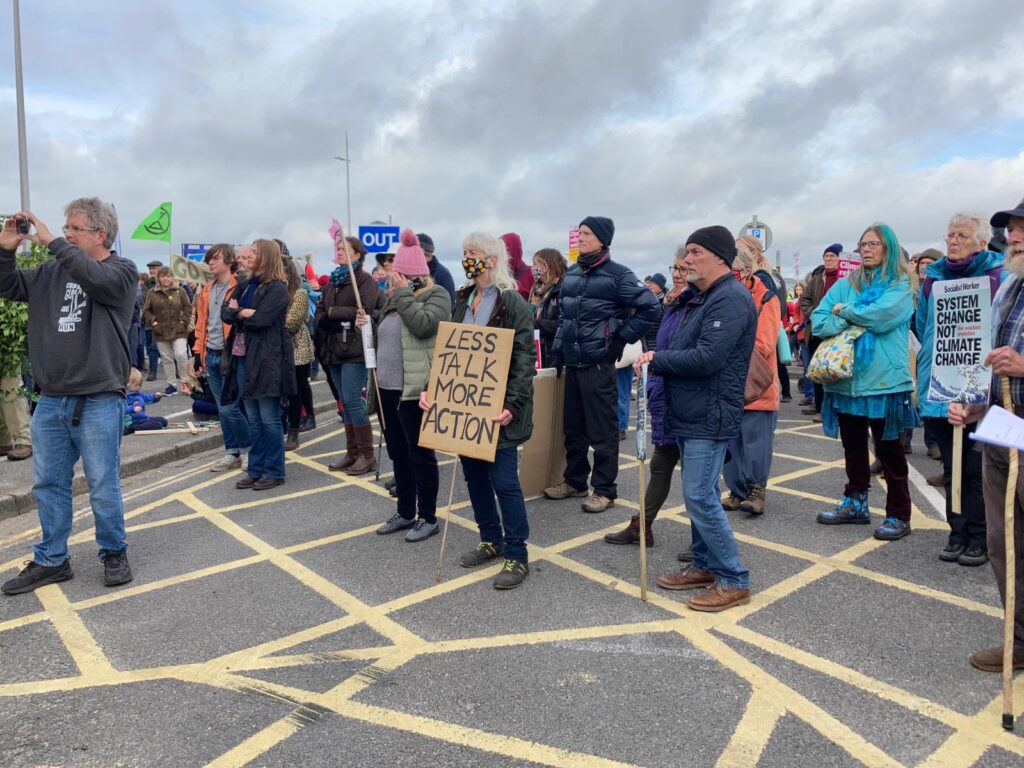
“Climate change and health are interwoven.” Lynne said.
“A changing climate affects health on so many levels – clean air, safe drinking water, sufficient food and secure shelter. Climate change will see huge amounts of additional deaths per year, from malnutrition, malaria, diarrhoea and heat stress. In the UK we’re likely to experience higher death rates among the elderely who will struggle with extremes in temperatures especially in winter because of badly insulated properties and fuel poverty”
As world leaders meet in Glasgow at the global climate talks, the decisions they make will shape how governments respond (or not) to the climate crisis. They will decide who is to be sacrificed, who will escape and who will make a profit.
“This COP is one of the whitest climate conferences we’ve seen.” Said Phil Marfleet, from Stand Up to Racism pointing out the imbalance of privilege.
“Representatives from the Global South have found it difficult to travel to Glasgow whilst their Global North counterparts turn up by private jet to decide their fate. The failure to act is already impacting on the lives of people in the Global South who are disproportionately affected by the climate crisis that we’ve largely caused. Millions in Madagascar are currently on the brink of famine due to climate change!”
To honour the lives of those already lost to climate change in the global south, the march that processed through St Mary’s street paused and fell into a respectful silence for a minute. From the silence a whispered chant of “we are unstoppable, another world is possible” grew to a mighty roar before the march continued on it’s circular route back to the Pavilion.
The recent anti-waste incinerator protests have highlighted climate related injustices closer to home. The proposed incinerator site is close to one of the most economically challenged and densely populated areas in Portland. The nearest homes are less than 500 metres away and would be on a level with emissions from the chimney. The polluting emissions and ultra-fine particles would threaten the health of residents.
Andy Smith, a climate activist, who has been fighting for climate justice for the last 3 years expressed his frustration regarding the seeming lack of knowledge from the commercial sector and politicians.
“New incinerator proposals like the one on Portland demonstrate that our political and business leaders still don’t fully understand the extent of the seriousness of the situation or worse yet know, but prefer to profit. In Glasgow world leaders, almost all of whom are male, are making pledges so far in the future that we stand virtually no chance of limiting global warming to 1.5°C.” he said.
“We need urgent action to stop catastrophic climate change. Global temperature rise must be limited to 1.5°C – anything above this means that climate change is no longer just disastrous, but catastrophic. Even if governments claim this is their target, current plans don’t put us anywhere near on track to achieve it.”
Revd Br Alasdair Kay, who was representing Christian Climate Action highlighted the disparity of intention between the protesters and our leaders.
“Global problems need global solutions. Our leaders are putting profit before people and we’re here today, along with people all over the world, to demonstrate that unity, love and compassion are more powerful than greed, profit and hollow promises.”
Andy Smith, said the lack of in-person events during covid has cost the climate movement vital time.
“Sadly Covid cost us a year of progress. In person, disruptive protests are vital to force leaders to tackle this global crisis and to raise awareness. I hope Dorset Council sees the number of people here today and starts to take the issue more seriously. For any significant change to happen within a reasonable timeframe people need to unite enmasse and express their disdain at the lack of action coming from our leaders. Sadly our government is currently more willing to imprison climate protesters than make any meaningful change.”
Andy continued “If people want to find out more they can attend a talk about the impacts of the climate crisis, an explanation of the science and how we can tackle the problem on Tuesday 16th November, 7:30pm at St Edmund’s church hall, Ludlow Road, Weymouth.

